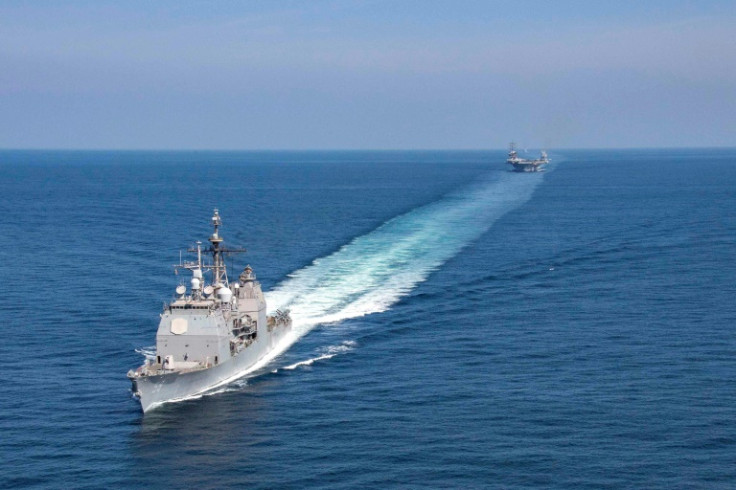
The U.S. Navy deployed a series of ships and aircraft to track Russian vessels conducting military drills in the Caribbean, Washington officials said, as they passed less than 30 miles off South Florida's coast but stayed in international waters.
The drills, which began on Tuesday, involve three ships and a nuclear-powered submarine. The Russian Defense Ministry said in a statement its hypersonic-capable frigate and the submarine simulated a strike on a group of enemy ships. Russia said none of its vessels carry nuclear weapons, an assessment confirmed by the United States.
The Biden administration said it's not concerned about the drills, the first of their kind in five years. Nonetheless, three destroyers and a submarine reconnaissance aircraft were deployed to track them.
"In accordance with standard procedures, we've been actively monitoring the Russian ships as they transit the Atlantic Ocean within international waters," a U.S. Northern Command official told The Miami Herald.
"Air and maritime assets under U.S. Northern Command have conducted operations to ensure the defense of the United States and Canada. Russia's deployments are part of routine naval activity which pose no direct threat or concern to the United States."
A U.S. official had already said that the drills have been planned for some time and are not likely to be a direct response to President Joe Biden partially lifting a ban on Ukraine to use U.S.-provided weaponry to attack targets within Russia, as well as stepped-up exercises with NATO allies.
The Russian ships are set to make a port stop in Cuba starting Wednesday and will stay there for a week. Another stop can take place in Venezuela after. The drills will extend throughout the summer and culminate in a worldwide exercise in the fall.
The drills take place amid heightened tensions between Moscow and Washington, with Russian President Vladimir Putin warning last week that the country could provide long-range weapons to others who intend to strike Western targets as a result of the U.S. and NATO's lifting of the mentioned ban.
"If they consider it possible to deliver such weapons to the combat zone to launch strikes on our territory and create problems for us, why don't we have the right to supply weapons of the same type to some regions of the world where they can be used to launch strikes on sensitive facilities of the countries that do it to Russia?" he said.
Speaking to foreign journalists, he said that the mentioned actions could lead to "very serious problems" as it would "mark their direct involvement in the war against the Russian Federation." "We reserve the right to act the same way," he added. He also reiterated his willingness to use nuclear weapons if he sees a threat to Russian sovereignty.
© 2025 Latin Times. All rights reserved. Do not reproduce without permission.




